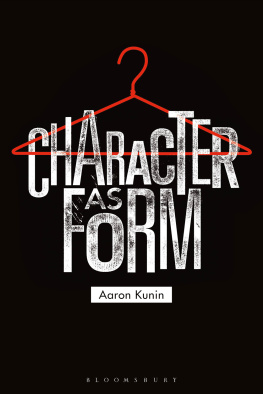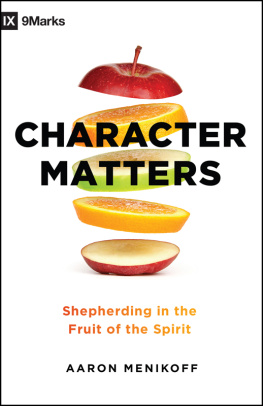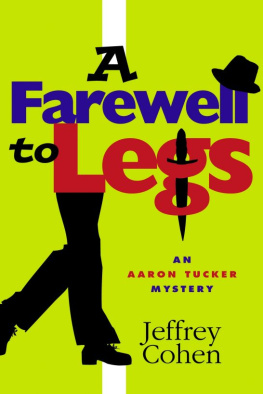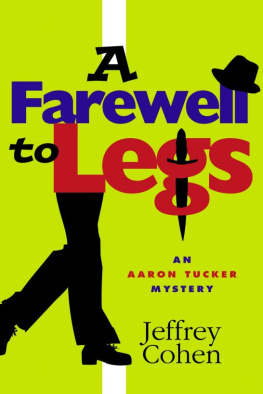Aaron Kunin - Character as Form
Here you can read online Aaron Kunin - Character as Form full text of the book (entire story) in english for free. Download pdf and epub, get meaning, cover and reviews about this ebook. year: 2019, publisher: Bloomsbury, genre: Art. Description of the work, (preface) as well as reviews are available. Best literature library LitArk.com created for fans of good reading and offers a wide selection of genres:
Romance novel
Science fiction
Adventure
Detective
Science
History
Home and family
Prose
Art
Politics
Computer
Non-fiction
Religion
Business
Children
Humor
Choose a favorite category and find really read worthwhile books. Enjoy immersion in the world of imagination, feel the emotions of the characters or learn something new for yourself, make an fascinating discovery.
- Book:Character as Form
- Author:
- Publisher:Bloomsbury
- Genre:
- Year:2019
- Rating:4 / 5
- Favourites:Add to favourites
- Your mark:
- 80
- 1
- 2
- 3
- 4
- 5
Character as Form: summary, description and annotation
We offer to read an annotation, description, summary or preface (depends on what the author of the book "Character as Form" wrote himself). If you haven't found the necessary information about the book — write in the comments, we will try to find it.
Character as Form — read online for free the complete book (whole text) full work
Below is the text of the book, divided by pages. System saving the place of the last page read, allows you to conveniently read the book "Character as Form" online for free, without having to search again every time where you left off. Put a bookmark, and you can go to the page where you finished reading at any time.
Font size:
Interval:
Bookmark:

Character as Form
Character as Form
Aaron Kunin
With illustrations by David Scher

Contents
Confession
Part of what one does in a job is pretending to do the job. Pretending to be a teacher or a cop or an assistant in an office or a store. Pretending to be busy. Pretending to listen. I suppose it is an element of play in work. It explains why workers need evidence that they are still in the trade they were trained for, as Erving Goffman observes (Goffman 1961, 145). Stacking chairs, moving pianosis this part of my job? Goofing offis this how I spend my time? Everything that I do without caring demoralizes me, and I look for evidence that I care about something.
Sometimes the answer is yes. This pretending can be good for me. Pretending to know something or to be interested in something. I rely on imagination for my intellectual development. If I stopped pretending, I might never learn anything new. Much of what I do as a teacher boils down to inventing reasons for my students to care about something they may never previously have imagined as a valuable thing. The Shakespeare survey that I teach comes as a relief because it is a rare occasion when I do not have to create the value of the book we are reading. My students bring their own reasons for thinking that Shakespeare is important. In fact the value of teaching Shakespeare does not have to be explained to anyone outside of the profession of literary studies.
Part of my job exists only to convince me that I am actually doing my job. To remind me that I am in the trade I was trained for. This is the worst kind of pretending. In school, where I work, this pretending takes the special form of question and answer. My students ask a question and I invent an answer. I ask my students a question and they invent an answer. I listen to an interesting lecture, ask a question about something vaguely relevant, and get a brilliant improvised answer. I listen to a boring lecture, invent a question out of pure spite, and ignore the speakers response.
Some of these questions are sincere and productive of knowledge. Others, without intending to produce knowledge, may do so inadvertently. They are all seemingly designed to produce false issues. School is always creating situations where talk is required, and these situations are a breeding ground for intellectual dishonesty. Because saying something is automatically superior to saying nothing, because no one takes my protestations of uncertainty or ignorance seriously, because it is never acceptable to refuse to answer, because the continuation of the form of question and answer is the only thing about which anyone reliably cares, I invent false issues. Then, because what I say is coerciveit seduces me more than it seduces my audiencebecause anything that exists tries to convince me to adjust to what is already there, because what I imagine saying but keep to myself has its own dark coercions, I pretend to care about the false issues. I add to them. They become my lifes work.
It is possible to dedicate your entire working life to false issues. Things that (you would think) no one could possibly care about.
The same problem may be observed in writing. I once knew a writer whose entire style, on the level of the sentence, was about multiplying false issues, moving them into view, and pretending to care about them. Always at the center of what he wrote, he narrated the production of his own narration until he somehow managed to dress the needless in the clothes of the fundamental and crucialdescribing this attention to the needless as, finally, an ethics.
Something that is not well understood about writing is that when you write something, you have to inhabit it. I was about to say that I dont mean that in a magical thinking way, but I do sort of mean it in a magical thinking way. Everyone knows how it happens when you read a book. If you read a book about bees, for instance, you start to notice the bees in your life. It can feel as though bees are following you. They appear before you as though in crazy synchronicity with the content of the book you are carrying. Suddenly they are everywhere. And their presence is easily explainable, because the book is simply pointing out the bees that were always in the background of your life.
And the same process occurs, in magical and non-magical ways, when you write a book. If you write a biography of Paulette Goddard, and the book comes out, someone might ask you to give a lecture about her. Someone organizes a symposium on movie stars from the 1930s and invites you to give a paper. That happens a couple of times, and pretty soon, before you know it, you have written enough material for a second book about Paulette Goddard. Then you read about a conference on women in classical Hollywood film and start grumbling because they didnt invite you to participate. Someone just mentions Goddard, and you say, Yes, here I am, present! Meanwhile you have been doing research, spending all your days in the Goddard archive, and members of her family and the Remarque family and the Meredith family have been sending you stuff, old letters, clothes, photos, all the stuff they dont want and cant fit in their closets, and it piles up in your house until, really, the subject of your book has taken over your entire life, and you may truthfully say, I am Paulette Goddard.
When you write something, you have to inhabit it. An ethics for writers should start here. Thus I am opposed to the idea that the relationship between writer and reader models a better kind of social relationship. That from studying books I learn to read people better. That in reading I encounter something other than myself and learn to recognize it, respect it, empathize with it. And the related idea that writers should prepare for the activity of readers. That I should empathize with readers, anticipate what they will care about, and reward them for their attention.
These ideas are not only wrong but harmful. Wrong because how you feel about other people is not a reliable foundation for an ethics. It isnt possible to have a personal relationship with everything. It isnt even true that my actions would be better if I learned to empathize with my victims. No. Better to treat people well regardless of how I felt about them. Regardless of whether I cared. Even if I couldnt stand them.
Harmful because everything I write without caring demoralizes me. There is nothing worse than writing, trying to write, what I do not care about. At these times my imagination of how readers are likely to respond, sheer paranoia and projection irrelevant to my own pleasure and conscience, torments me.
One of the first things you learn about poetry is that it is an address to something that does not appear. Writing that professes to accommodate readers, to reward them for their attention, has already given up on this possibility. Accommodating readers is not ethics at all; it is rhetoric. About which I am skeptical, and, like everyone, suspicious.
How I wrote this book
The ethics of writing, I am saying, is to write well. To be honest and have good style. Writing well is a problem for literary criticism. You know, we live in a world in which there is a lot of great art. We are blessed to live in a world where there is so much great poetry and music and painting and film. But there isnt a lot of great criticism. There is a certain amount of good criticism, and thats better than nothing. When criticism is good, it produces useful knowledge. Great criticism is as great as anything. Criticism, really great criticism, like in essays by Empson or Auerbach or Poulet or Colie, can be just as great as music or the movies.
Font size:
Interval:
Bookmark:
Similar books «Character as Form»
Look at similar books to Character as Form. We have selected literature similar in name and meaning in the hope of providing readers with more options to find new, interesting, not yet read works.
Discussion, reviews of the book Character as Form and just readers' own opinions. Leave your comments, write what you think about the work, its meaning or the main characters. Specify what exactly you liked and what you didn't like, and why you think so.













